Politics
/ArcaMax
Editorial: At Navy event, Trump focuses on himself and his grievances
It’s been several years since President Barack Obama stood at Naval Station Norfolk in front of active-duty sailors and compared Republicans to bugs in need of extermination.
In a rambling speech, Obama made specious claims about the armed forces, asserted that he predicted the Sept. 11 terrorist attacks, and urged uniformed service members ...Read more

Commentary: Do we really want armed 18-year-olds on ICE raids?
Immigration and Customs Enforcement held a hiring fair last month in Provo, Utah, that drew hundreds of job seekers — in part with signing bonuses up to $50,000 and salaries of $50,000 to $100,000 a year. This follows recruiting events in Arlington, Texas, in August and Chantilly, Virginia, in June. Despite polls showing that most Americans do...Read more

Lisa Jarvis: The White House's drug plan has some convenient blind spots
There couldn’t be a more pressing or galvanizing topic for Americans than the high cost of prescription drugs. And after months of blustery talk from President Donald Trump about lowering prices and cracking down on Big Pharma, his plans are finally starting to take shape, beginning with pacts with manufacturers.
But before we get too ...Read more

Commentary: Want the next breakthrough? Don't starve the science that makes it possible
If you’re scrolling through this story on a smartphone, you’re holding a product that harnesses one of the boldest investments the United States ever made into science.
In 1947, researchers at Bell Labs in Murray Hill, New Jersey, started this process by building the first working transistor. At the time, the so-called “semiconductor ...Read more
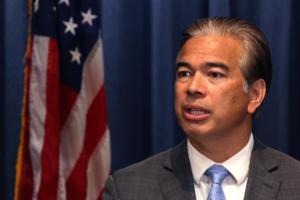
Anita Chabria: So much winning. Can Bonta maintain California's legal hot streak against Trump?
It was late Sunday evening when President Donald Trump got thumped with a court loss — again — by California.
No, a federal judge ruled, Trump cannot command the California National Guard to invade Portland, Ore. At the request of California Atty. Gen. Rob Bonta and others, U.S. District Judge Karin Immergut broadened a temporary ...Read more
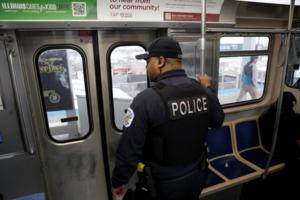
Editorial: Chicago can't shrug off the unease random attacks create
Rumors of a “Loop puncher” have swirled in Chicago for months — stories of women attacked seemingly at random. It turns out, there’s more than one man throwing punches, and not just downtown.
Many of us learned of the latest incident through a viral video online posted by Yara Afaneh last Tuesday after she was attacked on the platform ...Read more

Michael Hiltzik: There's much less than meets the eye in Trump's 'historic' drug price deal with Pfizer
If you had nothing better to do on Sept. 30, you might have tuned in to a White House event at which President Donald Trump, standing side-by-side with Albert Bourla, the CEO of Pfizer, announced a deal with the big drug company that was described from the podium as "a massive win for the American people."
Under the deal, according to the ...Read more
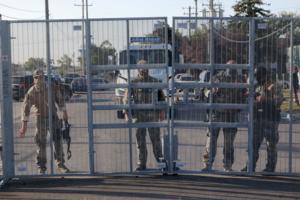
Editorial: How to make an American 'war zone'
If a U.S. president was just itching to militarize the streets of a politically unfriendly American city like some blustery third-world despot, how would he go about it?
First, he might start with a pretense that verges on legitimate — say, immigration enforcement. But rather than the routine kind of enforcement that quietly happens all the ...Read more
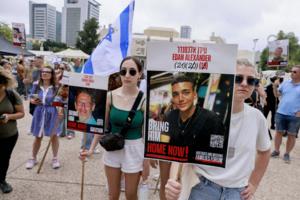
Editorial: After two years, a glimmer of hope
Two years after the Hamas massacre that began it, peace in Gaza is still a shore dimly seen. But at least it can be seen now.
The belligerents are talking about ending their monumentally tragic war. President Donald Trump’s comprehensive and fairly balanced peace proposal has brought partial consent from both sides. Negotiations continue ...Read more

Commentary: Three American Girl dolls with a message for Latinas (and everyone else)
On Sept.17, just two days into Hispanic Heritage Month, American Girl released the doll and character Raquel Reyes, the 2026 Girl of the Year. She is introduced as the great-great-granddaughter of Samantha Parkington — my favorite American Girl historical character, and the first heroine who taught me that compassion could change the world.
...Read more
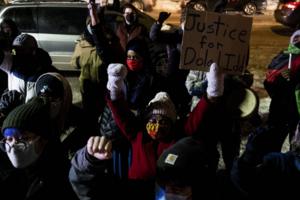
Editorial: The Chicago Teachers Union, Assata Shakur, and political violence<strong> </strong>
If one thing is true of teachers’ unions, it is that they are far more than just bargaining entities. They are cultural barometers, revealing the values and convictions of those entrusted with shaping the next generation. Through their public statements, policy endorsements and collective actions, these unions offer a rare window into the ...Read more

Stephen L. Carter: That 'landmark' free speech ruling misses the point
There’s been a lot of excitement about last week’s ruling by a federal judge in Boston that the Trump administration, in its efforts to deport college students holding objectionable political views, violated the First Amendment. Commentators have described the opinion by District Judge William G. Young as “blistering” and a “landmark�...Read more

Michael Hiltzik: Musk and other tech gurus say human-like robots are the next big thing. Don't hold your breath
With AI beginning to look as if it has reached a deployment plateau — if not a lessening of hype — high-tech promoters and investors are on the hunt for the next big thing. And they're focusing on humanoid robots.
You know the species because androids have been a mainstay of science fiction since before Isaac Asimov coined the "three laws ...Read more
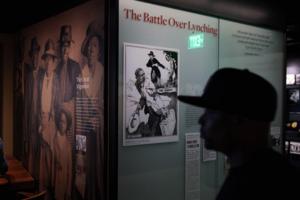
Commentary: What can we do as the Trump administration sanitizes civics education?
On Constitution Day, the Department of Education announced the America 250 Civics Education Coalition, partnering with organizations such as Turning Point USA and Hillsdale College to shape civics curriculum nationwide. The timing is no coincidence: As America approaches the 250th anniversary of the Declaration of Independence, we face a ...Read more

John M. Crisp: No patience for complexity
A large subset of Americans is so disconcerted by a small subset of fellow citizens that the former sometimes tries to proclaim the latter out of existence, as President Donald Trump did in his inaugural address in January: “As of today, it will henceforth be the official policy of the United States government that there are only two genders, ...Read more
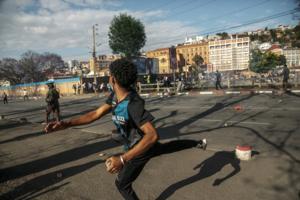
Commentary: Gen Z-led protests are spreading rapidly across the globe
Around the world, Gen Z is leading a wave of anti-government protests. It is the most significant spike in global dissent since the Arab Spring 15 years ago, with a geographic reach already to four continents. Though the proximate cause of protests in each country differs, all are driven by young people who are angry at rising government ...Read more

Commentary: A public fight among Illinois bishops is hurting the church and the nation
The public clash between Chicago Cardinal Blase Cupich and Springfield Bishop Thomas Paprocki over whether U.S. Sen. Dick Durbin should receive a lifetime achievement award from the Archdiocese of Chicago’s Keep Hope Alive program has spilled into the public square with damaging effect.
What might have been an internal disagreement has ...Read more

Commentary: Charging $100,000 for H-1B visas will cost the US uncountable wealth
President Donald Trump signed a proclamation that imposes a $100,000 fee on H-1B visa applications, the immigration allocation set aside for highly skilled workers the U.S. economy needs. The new rules threaten the availability and deployment of human capital in the United States. This is misguided and will hurt U.S. growth and innovation, at a ...Read more

Commentary: Trump's fixation on loyalty is bad for nation
It’s no secret that Donald Trump, in his first term as president, felt stymied by cabinet secretaries and other political appointees who occasionally disagreed with his whims. Consequently, that first term saw a parade of high level appointees, including Communications Director Anthony Scaramucci, Attorney General Jeff Sessions and Secretary ...Read more
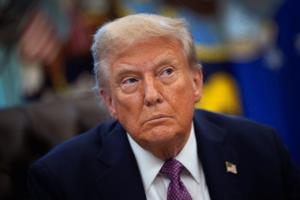
George Skelton: Forget the high-road jibber-jabber. Prop. 50 is about who controls Congress
SACRAMENTO, Calif. — Regardless of all the campaign jabber, Proposition 50 is not about saving democracy, stopping power grabs or veering off the moral high road. It’s about which political party controls Congress.
Or whether Republicans and Democrats share the power.
It’s also about exerting some control over unhinged President Donald ...Read more






















































